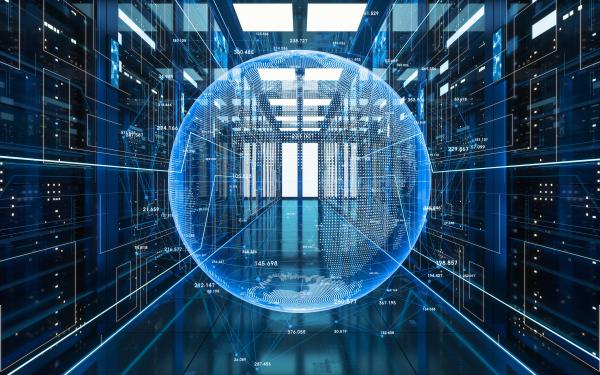A new report on how digital resilience can be advanced by developments in artificial intelligence (AI), quantum technology and cloud computing has been produced by Resilience First with Accenture and Cranfield University.
The Fourth Industrial Revolution is characterised by a fusion of technologies that blur the lines between the physical, digital and biological spheres. The report finds that this latest industrial revolution is moving at an exponential pace compared to previous revolutions. Moreover, it is both advancing and disrupting almost every industry in every country. The breadth and depth of these changes herald the transformation of entire systems of production, management, and governance. The key questions are how resilient the new technologies can be and how can they affect the resilience of organisations.
According to the report, the opportunities and challenges these technologies represent are enormous. They can raise global income levels, improve the quality of life for many around the world, and produce new products and services that increase the efficiencies and resilience of many organisations. Yet, technology can also contribute to societal inequalities, reduce resilience by making us ever more dependent on those technologies, and question our ability to control progress within fragile social structures. The benefits of the Fourth Industrial Revolution must be carefully balanced with the potential risks.
Mike Rooney, CEO of Resilience First said:
“The challenges and opportunities presented by the three technologies described in our digital resilience report are enormous. Technology will make it possible to produce new products and services that increase the efficiency and resilience of many organisations. On the other hand, a dependency on technology can reduce business resilience and, therefore, it is really important for businesses to have independent scrutiny of their digital systems, particularly around critical issues, such as use of data.”
Heather Adams, UKI Risk Strategy and Consulting Lead for Accenture, said:
“In a time of unprecedented disruption and compressed transformation, business resilience is at the top of every leader’s agenda. Advanced technologies like AI, quantum technology and cloud computing – particularly when used together – can enable businesses to turn up the dial on resilience, becoming more agile and adaptable. Risks can be mitigated through the responsible adoption of these technologies that is anchored in the broader business strategy.”
Professor Weisi Guo, Director of the Smart Living Grand Challenge and Head of Human Machine Intelligence Group at Cranfield University, said:
“AI is the ability of machines to learn and exhibit human-level intelligence and the past decade has witnessed an astounding growth of AI innovations and applications. It can make complex decisions, such as we see with automotive vehicles, but legal and policy frameworks exist to help manage any risks”.
Nigel Sutton, Digital Rail, Thales Ground Transportation Systems, said:
“Each of the new technologies has their own risks and businesses need to be aware of these to effectively manage the use of new technology. The best way of understanding the risks and the opportunities is to start using the technology but prepare first and do some research on what you are using”.
We hope you find this topical guide of interest. Further resilience themes looking at the application of these new technologies will be covered in the future. Please let us know if you would be interested in collaborating with us on these upcoming editions, by emailing us at contact@resiliencefirst.co.uk



